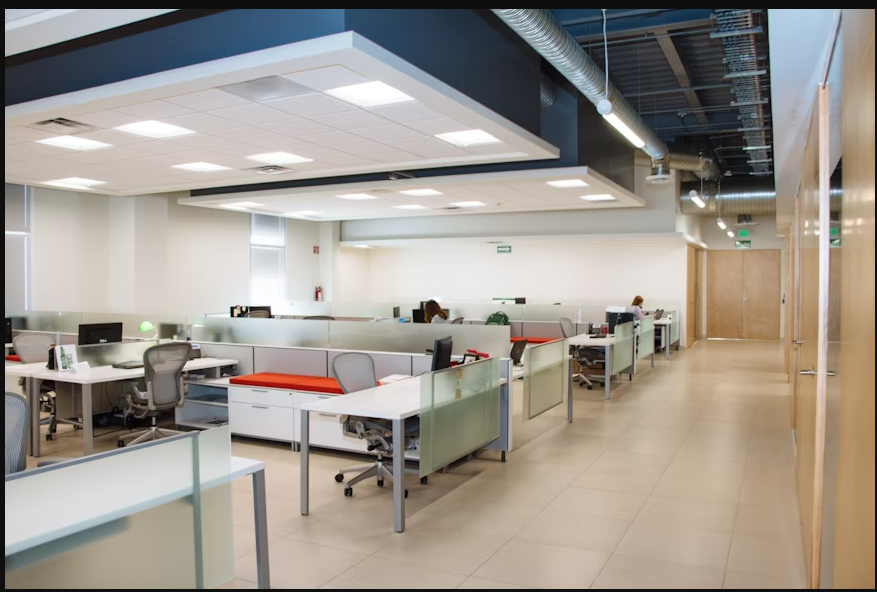Corner offices and corporate ladders are not for everybody. Some students sense early on that they’re wired differently. They may casually step up to revise their teacher’s group project rubric for more clarity or point out inefficiencies that others overlook.
Such brief moments are not merely personality quirks, but subtle clues that should be paid attention to. Students like these will likely become professionals who feel constrained by traditional work rules.
A recent survey involving 2,000 American workers found that 38% of them felt more uninspired now than ever. This was especially true of routine, in-person roles. What if there are certain clues you can pick up on, even now before you’ve entered the workforce?
This article will share three low-key clues that may indicate that the cubicle is not your future. When you recognize these clues, it becomes easier to choose a purposeful career that doesn’t require fitting yourself into a stereotypical mold.
#1: You Get Restless With Routine
Even diligent people may find it difficult to stay in high spirits when their work is too monotonous. Can you relate? You don’t hate the idea of work, just the thought of doing the same thing every day.
There might be people who thrive on predictability, but you feel like it’s more draining than productive. What you crave is a challenge and a touch of the unexpected. Listed below are some subtle signs that routine might be quietly draining you:
- The thought of repeating the same task day after day is dreadful.
- You redesign systems just to make your work more engaging.
- When unforeseen problems crop up, you thrive on finding solutions.
- You experience mental fog during monotonous assignments.
Keep in mind that no occupation is 100% immune to boredom. Studies have discovered that on average, employees are bored at work for 10+ hours in a week. This includes astronauts and police officers!
You also need to understand whether your restlessness is internal or situational. The key takeaway is not simply a change of the environment, but mainly a purposeful variety that offers the mental stimulation you need. So, choose a role based on personal tendencies, not established stereotypes, for meaningful repetition of tasks.
If you can thrive on routine, provided it is meaningful, then try out the following roles: occupational therapist, elementary school teacher, UX tester, or behavioral therapist. These roles balance structured repetition with a sense of mission and relational depth.
#2: You’re the Go-To Person for Help
Would you say people instinctively look for you when they need some help? Perhaps domains may differ, but you’re the one they look up to because you’re supportive and dependable.
Here are some signs that you have natural caregiving tendencies:
- People admit that they feel better talking to you.
- You’re often sought for help with personal or health-related concerns.
- Even when it’s inconvenient, you’re quick to respond.
- You feel a sense of purpose when others rely on you.
Being a natural helper is a remarkable thing. It also means you won’t thrive detached from impact or human connection. Such tendencies point to a career in service, leadership, or healing. At first glance, your options may seem limited to teaching or psychology. However, that’s not true.
Think outside the box to roles in healthcare where you get to serve in a community setting, like a family nurse practitioner (FNP). According to the American International College, FNPs get to extend their care to patients of all ages, creating relationships in the process that last a lifetime.
Now, many who pursue this calling are already working a day job, which is why an MSN FNP online program offers the required flexibility. The self-paced learning allows aspirants to move towards a purpose-driven career without putting current life on pause. Similar unique roles for natural helpers include health coach, social worker, doula, and rehabilitation therapist.
#3: You Value Autonomy, Not Just Perks
Who doesn’t love certain benefits at work, like office game rooms and free lunches, right? While you also appreciate them, they’re not your utmost priority. What truly brings you to life is freedom, the sort that lets you think creatively and take charge of your workflow.
First, let’s mention the signs that you prioritize independence in your day-to-day life:
- It feels stifling to have every step of a task pre-approved.
- You’re inclined to measure your job’s value in terms of freedom and purpose, not superficial incentives.
- The thought of trading office perks for autonomy does not bother you.
- You’re more productive when no one is watching over your shoulders.
The interesting thing is that the above-mentioned signs are also a part of a global shift. PwC’s Global Workforce Hopes and Fears Survey 2024 found that 77% of the respondents were ready to adapt to new ways of working.
Among the important requirements, employees ranked flexibility and fulfilling work (something which tied back to autonomy) as the utmost priorities. Also, another 2024 study found that as much as 83% of workers had an unhealthy relationship with work.
Most didn’t see rigid job structures as satisfying or sustainable. This disconnect explains why so many are seeking careers that offer, not just stability, but also ownership. Based on that, the job roles that best align with a need for autonomy include a freelancer, health coach, UI/UX designer, and entrepreneur.
The three traits we have discussed are not always loud or dramatic. They’re not as straightforward as “you hate boring meetings, so it’s best to become a freelancer.” They’re under-the-surface patterns that develop over time.
When brought together, they form a quiet roadmap that points away from cubicles toward a flexible and meaningful career path. So, pay attention to the subtle signals. Your ideal role may already be within your reach.





